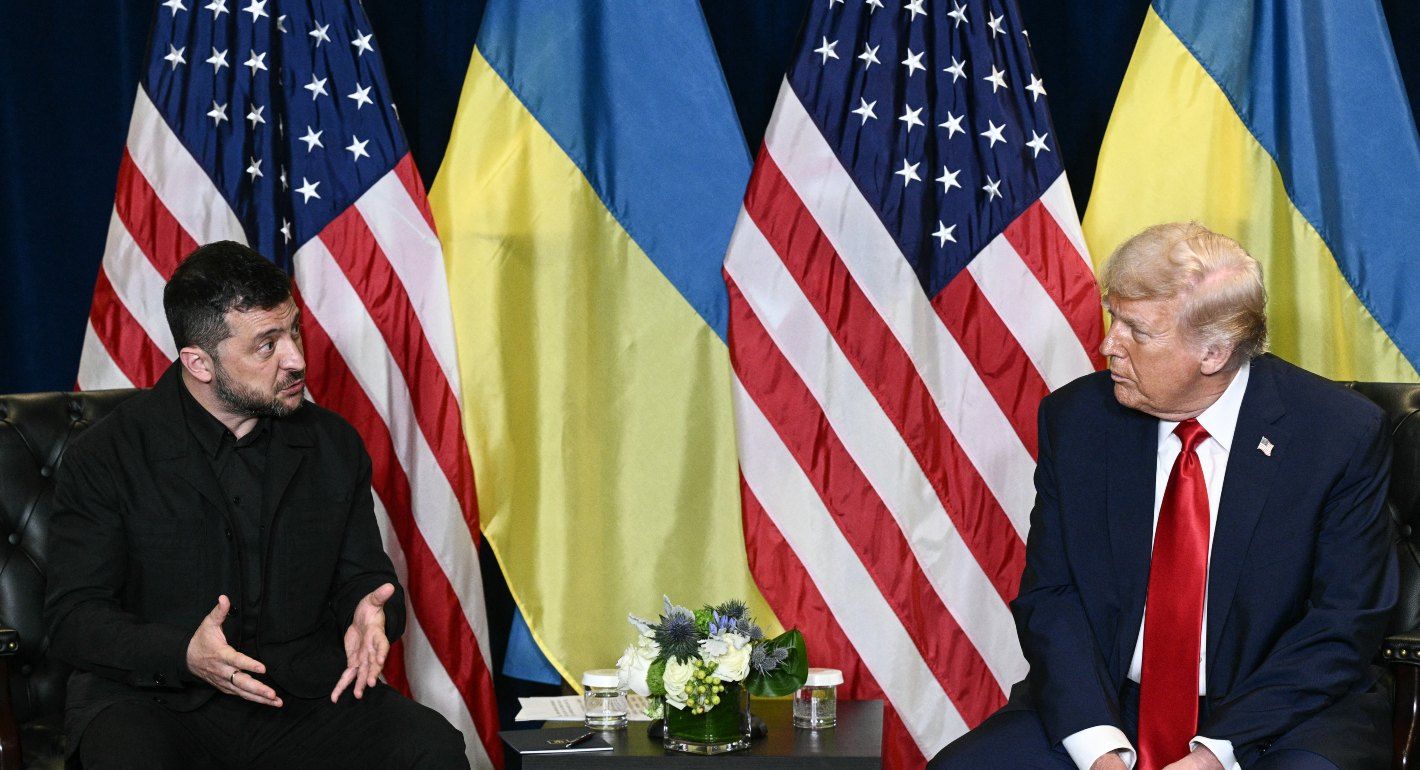Language helps us grasp what is going on around us and, in turn, shapes our thinking. In politics, language defines the parameters of the (im)possible.
The significance of language increases in times of war and crisis when uncertainty abounds. It critically shapes expectations and, at the same time, can be a convenient tool to paper over cracks and policy inconsistencies.
U.S. President Donald Trump's constant references to a “deal”—on a wide range of issues, from trade to peace—are the most obvious example in this regard. The word established itself surprisingly quickly in international reporting on erratic U.S. diplomacy. It is now widely used even by many governments and EU officials, often without written or audible quotation marks and a sense of distance. Not only are the acrimonious negotiations about U.S. tariffs and counter-tariffs discussed as “deals,” even the very distant prospect of ending Russia’s war against Ukraine is widely cast in these terms. Thus, the necessarily complex negotiations about a ceasefire or a lasting peace, neither of which have even started, have been reduced to something akin to a business transaction.
The list of euphemistic terms in global politics that catch on and begin to have a direct effect on the issues at stake is growing. The speed at which they get adopted is symptomatic of the times we are living in, when old certainties about the international order and European security have been uprooted and new orders are not yet on the horizon. Seemingly decisive terms like “deal,” “success,” and “security guarantees” aim to project a sense of certainty, resolve, and consensus where they do not exist. In the context of the Russian invasion of Ukraine, such language framing policy and public debates not only does not help formulate a proactive and sustainable policy agenda but actively prevents its development.
The bilateral meeting between Trump and Russian President Vladimir Putin in Alaska in August and the subsequent meeting in Washington between Trump, Ukrainian President Volodymyr Zelensky, European heads of government, European Commission President Ursula von der Leyen, and NATO Secretary General Mark Rutte were widely referred to as peace negotiations, although neither the content nor the form of the meetings deserved this designation.
Europeans deliberately talked up expectations ahead of the meeting, referring to the possibility of an agreement that could pause or end the war. They all should have known better. But right after the talks in Alaska and Washington and in the apparent absence of tangible outcomes, Trump and Putin, but also all European representatives who traveled to D.C. and many others jumped on the bandwagon and described them as “successful.” And so, based on no concrete progress, Europeans consider their meeting in Washington D.C. to have successfully prevented worse things from happening to Ukraine. That is how much of Trump’s diplomatic style has lowered the bar. It has upended the baseline hypothesis that the U.S. position would be resolutely in support of Europe against its aggressor Russia.
The presence of members of the so-called European “coalition of the willing” in Washington is best described as an unprecedented exercise in damage limitation. To achieve this, European leaders engaged in rhetorical contortions, courted Trump, and ultimately celebrated the fact that no tangible results had been achieved. Apart from vague talk of a possible U.S. participation in security guarantees for Ukraine and unrealistic expectations raised by the Trump administration—and echoed in European capitals—that a meeting between Zelensky and Putin might be imminent, there was no externally visible result.
By focusing on security guarantees for Ukraine, European leaders have attempted to buy themselves maneuvering space and credibility with Trump. However, both the “coalition of the willing” and “security guarantees” give the impression the Europeans and their partners are more resolved, united, and willing to take concrete action in the Ukrainian theater than they actually are. That has deadly consequences for Kyiv. And while it is necessary for European governments to be clear about what they are and are not willing to contribute to Ukraine’s and Europe’s security in the future, concrete plans only make sense if the contours of an actual ceasefire or peace negotiations materialize. Those depend mostly on the United States and Russia, given Europeans have not given themselves the needed infield leverage to weigh on these talks. Without this, any discussion about security guarantees hovers in midair. The fact that the issue of a ceasefire has all but disappeared from view again a mere few weeks later after the peace talks in Alaska and Washington is evidence of its vacuity for the time being.
Trump’s most recent and probably fleeting reference to Ukraine’s victory invoked the possibility of Ukraine deoccupying the territories currently controlled by Russia. But at a time when Ukraine’s European partners have scaled down their rhetoric of winning the war, Trump’s comment signals a new round of linguistic entanglements that obscure rather than enlighten the process of defining policy. The price European leaders have paid for intermittently being granted a seat at Trump’s table is that they are trying to engage from within Trump’s own reality in order to influence him. Slippery language is an essential part of this world. It has in some ways already taken on a life of its own, largely disconnected from the kinetic realities on the ground. While aiming to project certainty and power, it distracts, seemingly buys some time, and avoids formulating a coherent policy.
In the absence of reliable U.S. support—a fact Ukrainian society and politicians have understood much better than Ukraine’s European partners—there is no consensus in Europe on the necessary financial and military support for Ukraine and tougher sanctions against Russia. Europe's political representatives are less flamboyant and grating than Trump, but they too are mostly gesticulating by producing postcard snapshot moments with Trump and using slippery language instead of effective policies. Every day, Ukraine is paying the price for this lack of direction with human lives.











